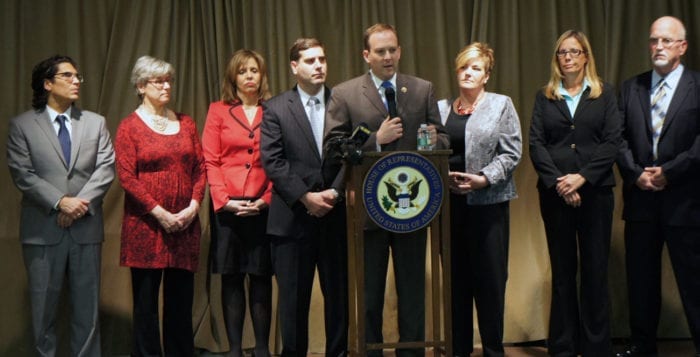By Fr. Francis Pizzarelli

As the New Year begins, we are still a polarized nation because of our politics and profoundly disrespectful rhetoric. Racial hatred and violence continues to increase. Concerns about the undocumented and our broken immigration system continue to instill fear and paralyzing anxiety among so many people from so many different ethnicities. Health care is becoming a nightmare, and no one seems concerned enough to challenge the insurance companies that are continuing to sentence so many people to premature death.
The heroin epidemic continues to be a national health crisis that falls on deaf ears. Treatment beds are not increasing and with the anticipated crisis in health care, there will probably be even fewer beds for those afflicted with this life-threatening addiction we call heroin.
Although the present social and political landscape across our nation is in turmoil, there is a profound awareness that we need to live and act differently; the American dream is not dead but truly alive! Hopefully our new president will spend his first hundred days healing and unifying our nation, building bridges and not walls with his message to make “America Great Again.”
For many of us, America is already great and for me that is best seen during the holiday season. This year I was amazed that in spite of all the turmoil nationally, people’s generosity toward others, especially those in need, has been extraordinary. Each day, I see firsthand the generosity of so many talented and gifted people. Local physicians, lawyers, accountants, social workers, psychiatrist, teachers and tradespeople to name a few who volunteered to help those who are trying to navigate the difficult landscape of daily living. Thanks to the generosity of so many hands and hearts, those they touch have a chance to keep their lives on track and move forward. Without this generosity, many people in need would lose their way.
For more than two decades, I’ve been privileged to share my insights and my observations in this space. Every New Year I make a couple of recommendations as the New Year begins. This year begins a whole new chapter for us as a nation! This past election was unprecedented. The future is exciting, challenging and probably a bit frightening — because our newly elected president is not predictable — like most of life!
Probably my most important recommendations are that we reclaim a civil and respectful discourse when discussing any issue; that we work harder at respecting all people no matter what their race, creed, color, sexual orientation or political perspective. Respect costs nothing but shapes everything. It serves no purpose to gossip or malign another person’s character and reputation.
We need to work harder at being less judgmental of human circumstances and situations that we don’t understand. We should never judge another by the color of his or her skin, the clothes he or she wears, the piercings or tattoos he or she displays or the lifestyle he or she embraces. If we judge less and respect more, the violence that is infecting our communities will be substantially reduced.
My final recommendation has to do with risk-taking. Too often we see things that trouble us and we keep silent. Sometimes that silence can be lethal, especially when it comes to our children’s social behaviors. We need to speak up and step out in regards to the reckless decision-making that a number of our young people are engaging: the illegal use of alcohol, prescription medication and illegal drugs. If we care about our children and their future, we must have the courage to risk our own comfort and do the right thing.
As this New Year begins, let us be more vigilant. Let us call our government to greater accountability to be more responsive to the needs of those among us who are less fortunate. The poor and the homeless are not invisible and government should not act as if they are. We are painfully reminded that we are vulnerable and not invincible. All life is sacred but only temporary. Thus, whatever we can do to make life better, we need to do it now for we may not pass this way again.
So, let us think and act more positively with a cooperative spirit in ways that will make our community better. Let us become the change we wish to see in the world (Gandhi). Remember, you can make a difference that really counts!
Fr. Pizzarelli, SMM, LCSW-R, ACSW, DCSW, is the director of Hope House Ministries in Port Jefferson.






